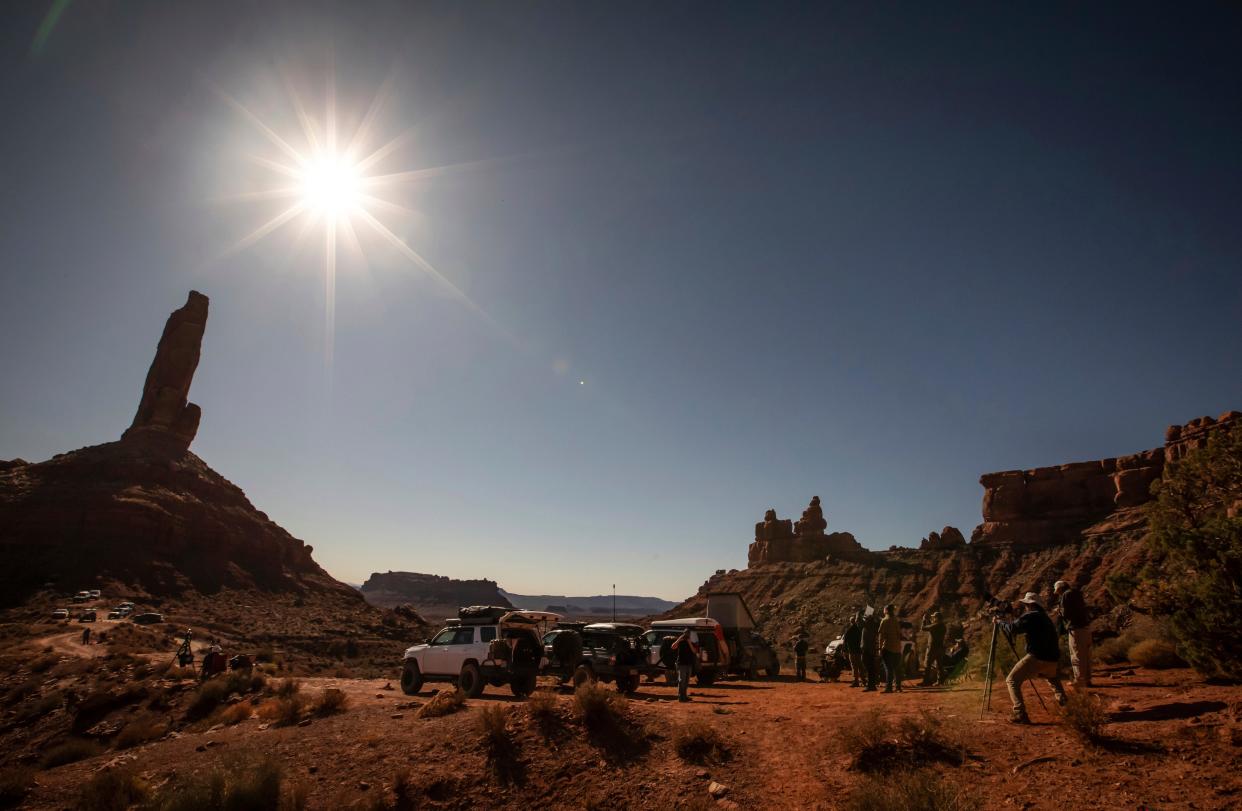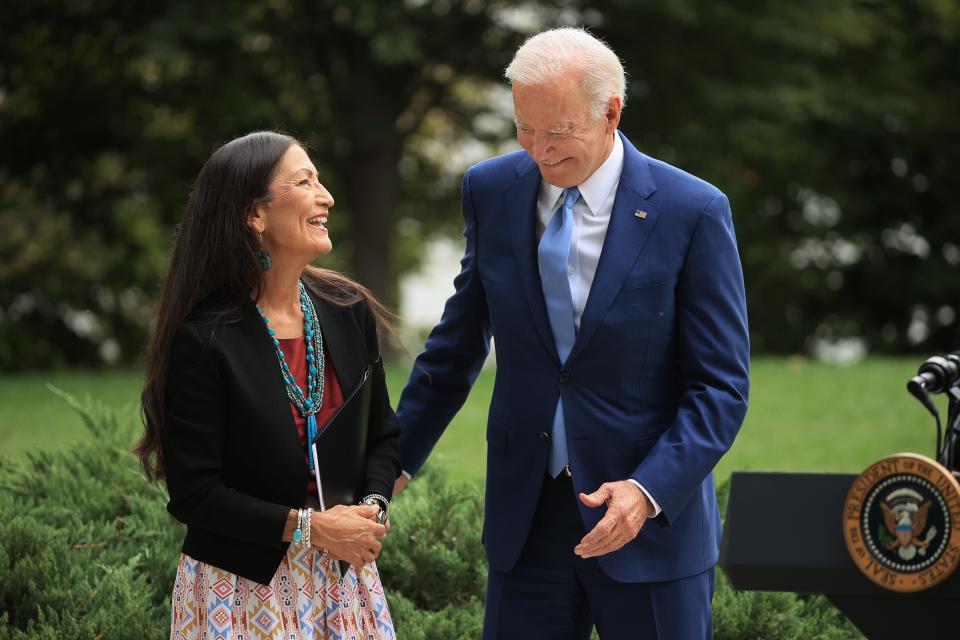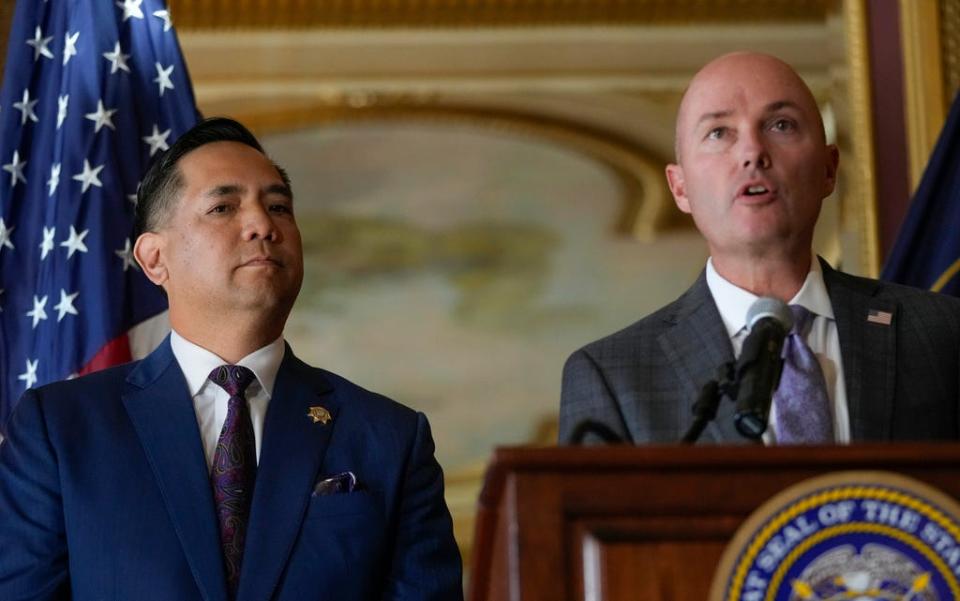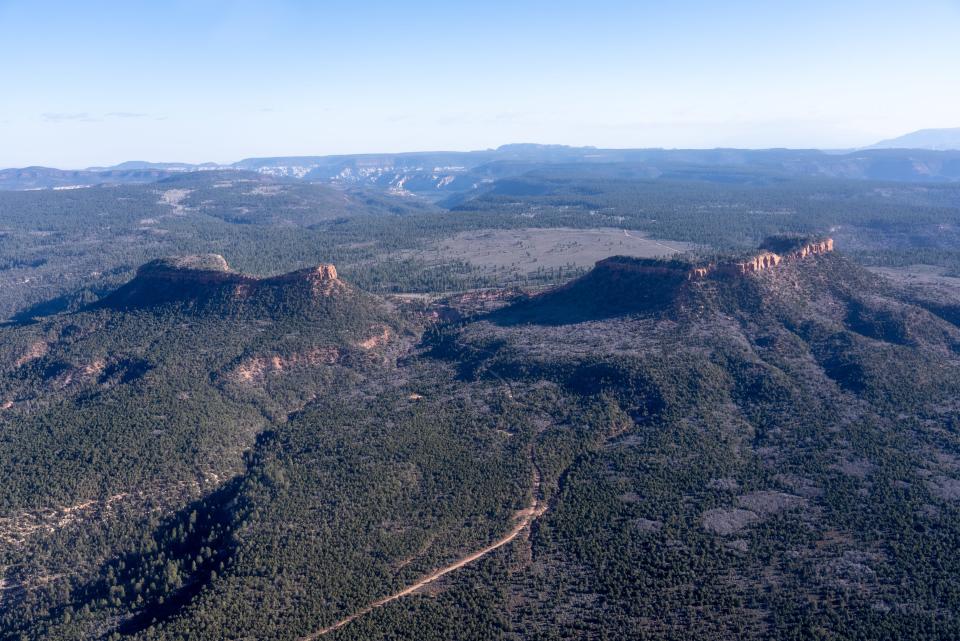Utah appeals court decision to toss lawsuit over Bears Ears, Grand Staircase-Escalante

Utah is appealing a decision by a federal judge to dismiss the state's lawsuit against President Joe Biden's restoration of the Bears Ears and Grand Staircase-Escalante national monuments.
In a brief filed Tuesday with the 10th Circuit Court of Appeals by the state Attorney General's Office, officials argue Biden's move violated the Antiquities Act of 1906. They argue a majority of the objects identified in the monuments as historic or scientifically important do not meet the specific requirements as outlined in the law.
In August, U.S. District Court Judge David Nuffer tossed out the state's case, ruling the Antiquities Act grants the president broad authority to designate national monuments.
"In spite of the sincere and deeply held view of the Plaintiffs, there is no relief for them in this action," Nuffer wrote.
Utah Attorney General Sean Reyes immediately announced plans to appeal.

"The Attorney General’s Office respectfully but strongly disagrees with the court’s order on the Monuments case today," Reyes said in a written statement. "We will appeal the dismissal in order to stand up against President Biden’s egregious abuse of the Antiquities Act."
The coalition of Native American tribes and conservation groups that asked for the dismissal had celebrated it as a win for tribal and environmental issues.
Legal battles over national monuments
Various sides have battled for years over the two monuments, which combine to take up more than 3 million acres of sparsely populated, geologically unique and mostly publicly-owned lands along the Utah-Arizona border.
Most of the arguments have centered around the Antiquities Act, a century-old law signed by Theodore Roosevelt to protect public lands.
More: National monuments review a legal test for Antiquities Act
The law gives the president broad power to establish national monuments as a way to protect federal land that contains “historic landmarks, historic and prehistoric structures, and other objects of historic or scientific interest.”
President Bill Clinton designated Grand Staircase a national monument in 1996 and President Barak Obama designated Bears Ears in 2016. Trump moved to shrink both in 2017, urged on by Utah Republicans who had long chafed over restrictions on how monuments can be used.
Trump’s decision opened up parts of the monuments for mining, drilling and other development. Low demand and high production costs led to minimal interest from energy companies.

When Biden restored the lands in October 2021, he called Bears Ears “a place of reverence and a sacred homeland to hundreds of generations of native peoples.” A coalition of tribes, including the Hopi, Ute Indian, Ute Mountain Ute, Zuni tribes and Navajo Nation, fought to restore the monuments.
But Utah Gov. Spencer Cox and other state officials — joined by two Republican-leaning counties — alleged in their lawsuit, filed last year, that Biden’s action violated the century-old law that allows presidents to protect sites considered historically, geographically or culturally important.
More: Who can save Grand Staircase-Escalante and Bears Ears from political chaos, vacillation?
They said the administration interpreted the 1906 Antiquities Act in an overly broad manner and disregarded its original intent: protecting particular historical or archaeological sites.
“The clear language of the law gives the president the authority only to designate monuments that are ’the smallest area compatible with the proper care and management of the objects to be protected,” Cox said in announcing the move. “Monument designations over a million acres are clearly outside that authority and end up ignoring local concerns and damaging the very resources we want to protect.”
New national monument outside of Utah
Many U.S. national parks started as national monuments, including four of the “Mighty Five” national parks in Utah, and there more than 130 monuments across the country.
Democratic presidents have long argued that designating large swaths of land is needed to protect certain areas. Bears Ears and Grand Staircase-Escalante encompass more than 3.2 million acres (1.3 million hectares) — an area nearly the size of Connecticut.
Trump’s 2017 order slashed Grand Staircase nearly in half and reduced the size of Bears Ears by 85%.

More recently, the back-and-forth political battle saw new battlelines drawn this summer when Biden created the new Baaj Nwaavjo I’tah Kukveni monument south of the Utah border on lands surrounding the Grand Canyon National Park.
Most of the land under designation was already federal, but open to various other uses like mining, logging, grazing and road building, which are now limited under monument designation.
Biden said the new designation would see the federal government live up to its treaty obligations with Native American tribes, some of which were forced out of their ancestral homes around the Grand Canyon when the national park was created. U.S. Interior Secretary Deb Haaland said the monument would give tribal members a voice in managing lands where they and their ancestors have long lived, farmed and prayed.
More: Federal judge dismisses Utah's lawsuit over national monuments
This article originally appeared on St. George Spectrum & Daily News: Utah appeals court decision to toss lawsuit over national monuments

